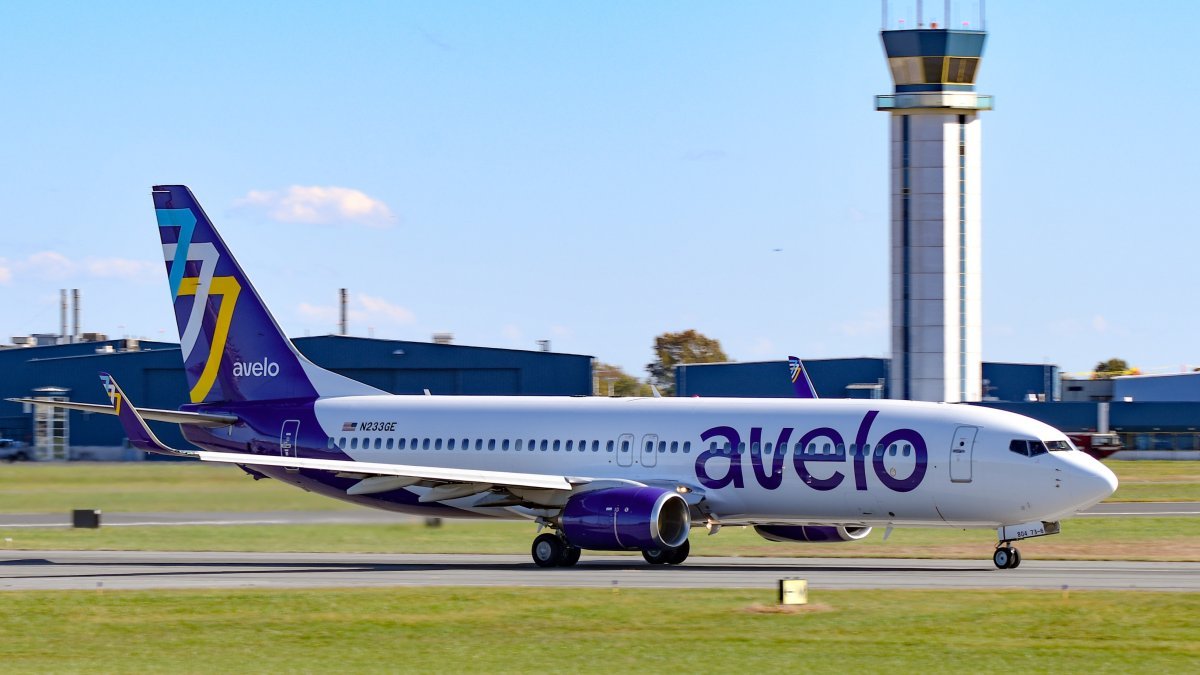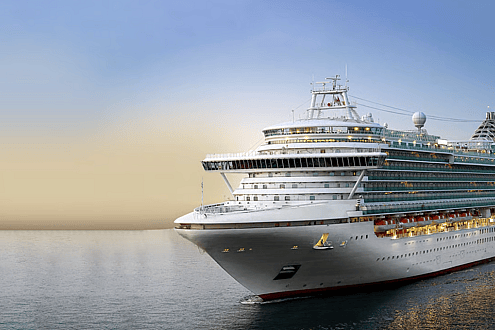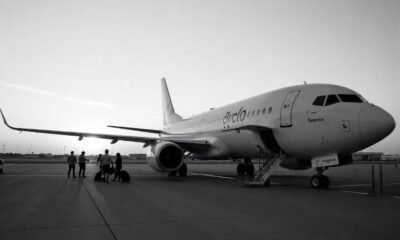Flight Buzz
New Haven bars city employees from using public funds to fly Avelo Airlines – NBC Connecticut

The City of New Haven and local organizations are calling out Avelo Airlines for its ongoing deportation flights.
Avelo Airline entered into a contract with the Department of Homeland Security in April to conduct deportation flights from Arizona beginning in May.
On July 28, the City of New Haven sent a memo to its employees “prohibiting the use of public funds for any travel on Avelo Airlines.” The memo goes on to say “no city financial resources may be used to promote, market, or partner with Avelo Airlines in any capacity.”
New Haven Mayor Justin Elicker said the memo is about “aligning our values with our taxpayer dollars.”
“The reality is the overwhelming majority of people in our community, documented or undocumented, are doing good things in our community,” Mayor Elicker said.
Elicker said as soon as he became aware of the deportation flights, he asked Avelo’s CEO to end them.
“I called the CEO of Avelo and asked to stop doing that type of activity, to think twice about it because he clearly would impact the Avelo brand and the local market, and unfortunately, they did not change course here.”
Avelo Airlines provided the following statement:
“It is unfortunate the City of New Haven has chosen to direct its employees to not fly Avelo for official travel, due to Avelo’s business decision to operate flights on behalf of the federal government. We hope in the future the City will change its mind. In the meantime, Avelo will continue to provide affordable, convenient and reliable air service to its millions of Customers in Connecticut and throughout the country.”
Courtney Goff, Avelo Airlines
Faxon Law New Haven Road Race, a nonprofit that brings together runners and community members on Labor Day, also cancelled its 3-year sponsorship relationship with the airline.
They provided the following statement:
Avelo has been a partner of the nonprofit race since 2022. The airline’s financial support helped the New Haven Road Race increase their support of local nonprofits and New Haven youth over the last few years. On May 12, Avelo began deportation flights from Phoenix–Mesa Airport, a development that disappointed many board members and triggered public outcry in our local community. Following a unanimous vote, the Board has formally ended the sponsorship relationship. Effective immediately, Avelo Airlines is no longer affiliated with the Faxon Law New Haven Road Race.
John Bysiewicz, JB Sports Event Management
NBC CT confirmed Puerto Ricans United Inc. out of New Haven is the second local organization to end its sponsorship with Avelo.
The Puerto Rican Festival of New Haven will be held Saturday, August 9 on the New Haven Green.
Flight Buzz
Pushing airport expansion while rail travel languishes – so much for Labour’s green agenda | Polly Toynbee

August is peak flying time, and airports are on many minds. The government has signalled its support for colossal expansions, whose extra flights would bust its carbon pledges. The excuse is that supertechnology will magic away the extra CO2 pumped into the atmosphere, though it must know that clean, green flying is still futurology. Here’s the pity of it: until now this government has rightly boasted of its green credentials, making massive investments in sustainable energy and retro-insulating cold homes. Expanding air travel is not on any green agenda.
Heathrow has just submitted proposals for a £50bn third runway, as approved by Labour in 2009 and the Tories who voted it through parliament in 2018. Covid applied the brakes but now Heathrow is back with gold-plated, “shovel-ready” plans. Its owners, including Qatar, Singapore and Saudi Arabia, expect the planning bill to prevent newts or judicial reviews blocking the runway. Their pitch to an investment-hungry government is that expanding Europe’s busiest airport would create 100,000 new jobs, propelling growth with 750 extra daily flights.
Flying gets a green light from the transport secretary, Heidi Alexander: she agreed to double the size of Luton airport, favours Gatwick’s second runway for 100,000 more flights and gives Stansted’s expansion a fair wind. These allow a 70% increase in flights above 2018 levels, and cancel out all the carbon savings from the government’s clean power plan.
Rachel Reeves promised to be “Britain’s first green chancellor”, but her plans live or die on growth, so billions in private investment is hard to resist. But beyond construction, the growth-potential claims for extra flights look highly dubious. The promised global “connectivity” imagines business people zipping into Britain with briefcases full of contracts. But that’s not who these extra flyers will be. Most will be frequent flyers flying more frequently, not for business but for leisure, according to the New Economics Foundation and Possible, the climate campaign. National Travel and Civil Aviation Authority passenger surveys show only one in 14 UK passengers are business travellers. The pandemic showed that meeting online saves money and time; business travel has already peaked. Would extra flights bring in tourist income? No, 70% of flights are British tourists off abroad to spend vastly more than foreigners spend here.
Of extra flights in 20 years, 83% were taken by already frequent flyers, mostly for leisure. Growth will not be from more families taking an annual holiday: half the population doesn’t fly in any year, while just 15% consume 70% of flights. Nearly a third are “ultra-frequent flyers” taking six or more journeys a year. Instead of these heaviest users paying more for their pollution, airlines reward frequent flyers. The Flying Fair report from the New Economics Foundation suggests imposing a high levy on those flying six or more times a year, not added to ticket prices but raised in tax returns. That makes the cost of their excessive air travel highly visible, and could raise £6bn a year, while cutting aviation CO2 by 28%.
Newly nationalised trains would gain from disincentivising flight. But UK prices are a bizarre deterrent. I’m planning to go to Edinburgh next week – a train journey I love. Checking prices, I found a £29.99 flight each way, while LNER costs £181.69 return. France has banned domestic flights where trains can do the journey in less than two and a half hours and so should we: start by banning airlines charging less than rail. Switch the 39m domestic journeys being made annually by plane to train.
The good news is the extra potential capacity in the Channel tunnel, which could be realised with a little investment. Twelve trains an hour run each way, but the tunnel could run 2.5 times more, and prices would fall. That’s where investment should go, instead of to airports, as new European routes open up. Yes, it takes longer. It means adding train time to the concept of a holiday. But if it were cheaper, what luxury it would be compared with the hell of holiday airports and flights that don’t land you in city centres.
Climate damage is the real cost of avoidable flying. The chancellor says: “Expansion must be delivered in line with UK’s legal, environmental and climate obligations.” But the Climate Change Committee (CCC), the government’s statutory adviser, warns that airport expansion would breach UK carbon budgets for net zero emissions by 2050. The aviation industry and government claim that wonder technology will deliver carbon-free flying with electric planes, sustainable aviation fuels (SAFs) and carbon capture. None is anywhere near available, says the CCC, which expects 17% SAFs by 2040. It advises no extra flying before 2030, and only 2% more by 2035, to allow time for new technology to be developed. Let’s hope clean flight arrives soon, but it’s not here yet: currently, suppliers must only guarantee that SAFs comprises 2% of the total. Here’s the honesty test for those claiming carbon-neutral flight is imminent: agree to no extra flying until it arrives.
The government’s mood music is all pro-flying, not urging climate-conscious travel. To change habits and attitudes, it should start by banning frequent flyer bonuses. Why allow private jets? Seat for seat they are 30 times more polluting, paying less tax as a proportion of ticket price, as was exposed by Possible’s Jetting away with it report.
The government’s airport policy will reveal its seriousness on the climate crisis. Politically, it shows whether Labour is sufficiently alarmed by serious threats from the left, from Greens, Liberal Democrats and Jeremy Corbyn revivalists pledged to invest in trains, not airports. But refusing airport expansion allows Tories and Faragistes to add those lost foreign billions to their dishonest tally of net zero costs.
A YouGov poll found that 61% of people regard airport expansion as the wrong priority, alongside mayors Andy Burnham and Sadiq Khan. But the Treasury’s dilemma is obvious: climate or cash? Its answer should also be clear: just call a moratorium until green flying arrives.
Flight Buzz
Allegiant Travel Flies Past Estimates But Still Faces Headwinds

What’s going on here?
Allegiant Travel chalked up record flight numbers and sailed past earnings targets last quarter, but still landed in the red as profitability pressures persist.
What does this mean?
Allegiant Travel posted an adjusted earnings per share (EPS) of $1.23 for Q2 2025, handily beating the $0.76 analysts expected, with revenue climbing 3.5% year-over-year to $689.4 million. Despite topping both revenue and profit forecasts, though, the company logged a net loss of $65.2 million under GAAP accounting. The carrier’s operational strength stood out, flying a record 37,000 flights with a 99.9% completion rate—evidence that cost-cutting moves are starting to pay off. Ancillary revenue improvements, like new product offerings and smarter pricing, added $3 per passenger and helped margins, but overall capacity is expected to stay flat this year. Management is aiming for an adjusted EPS above $2.25 for 2025, but softer Q3 guidance and rising fuel costs could be roadblocks. Still, Allegiant’s valuation has rebounded, now trading at 11 times forward earnings versus 7 earlier this year—signaling fresh optimism, even as analysts hedge their bets.
Why should I care?
For markets: Investor optimism takes flight but turbulence remains.
The airline industry is in a holding pattern between investor optimism and unresolved risks. Allegiant Travel’s shares are still 14% below Wall Street’s consensus target, and analysts remain cautious even as rivals get upgraded to ‘buy’. Higher price-to-earnings ratios point to improved sentiment, but flat capacity and ongoing net losses keep the mood measured. The sector is balancing sturdy travel demand and tight cost controls with unpredictable fuel prices and fragile profitability.
The bigger picture: Smooth skies don’t guarantee smooth profits.
Air travel has bounced back since the pandemic, but airlines continue to grapple with thin margins and fickle fuel costs. Allegiant’s push for more ancillary revenue echoes a broader industry playbook: finding fresh ways to make money as ticket competition stays fierce. Across the industry, cautious growth and a focus on financial stability are taking priority, reminding governments and economies that rising passenger numbers don’t always mean clear financial skies.
Flight Buzz
Cruises cheaper than flights? Why UAE residents are opting for sea travel

Cruise holidays are becoming popular with UAE travellers over this summer and beyond. While some chose unique experiences, others opt for ultra-luxurious, all-inclusive packages, which allow them to have a more intimate holiday.
“During the summer, we are seeing many families from the UAE and GCC region opting for cruise holidays, mostly in Europe, Far East and Caribbean,” said Mohamed Kasim from Akbar Travels. “Most of the people from the region opt for cruises lasting between seven and ten days and it is almost always booked by families, not people who are single.”
He said that vessels that offer distinct entertainment options are more popular than others. “Cruises like Icon of the Seas and Utopia of the Seas of Royal Caribbean have been extremely popular this season,” he said. The former cruise boasts of one of the largest waterparks at sea while the latter tends to be a more budget-friendly option.
Stay up to date with the latest news. Follow KT on WhatsApp Channels.
A spokesperson for Celestyal cruises, which homeported out of Abu Dhabi and Doha for the first time from December 2024 to March this year said that the demand had far exceeded their expectation from the region. “We had set an occupancy target of 60 per cent,” said Janet Parton, regional Vice President of Business Development at the company. “However, we were completely full on the majority of our cruises. So the response has been phenomenal and we are already getting bookings for our next season.”
She added that however, the GCC region were a “late booking” market, with many choosing to book at the last minute
Luxury cruises
Among cruise holidays, the luxury cruises vertical is one that is seeing an increase in demand. According to Lakshmi Durai, CEO of CruiseXplore, there are several reasons why people prefer luxury cruises. “People travel a lot, and they are always looking for something unique and different,” she said. “Luxury cruises have smaller ships which allow them to visit destinations that larger cruise ships may not be able to navigate. They are very boutique and the travellers are pampered. There are some cruises that offer very unique experience.”
In this year’s State of the Cruise Industry report by Cruise Lines International Association, the luxury cruise travel market has tripled globally since 2010.
Saleh Mohamed from Elevate Cruises explained why people prefer luxury cruises. “They come in smaller sizes with lesser number of people and all amenities inclusive,” he said. “Last year, we handled the Tauck cruise which was like a small yacht of 160 passengers but with a crew of almost 200 people to give personalised care for passengers. There were about 15 travel experts to accompany people during their excursions. So luxury cruise liners do out-of-the-box, unique experiences with an incredible level of service.”
Earlier this year, Saud Hareb Almheiri, Cruise Tourism & Yachting Lead, Dubai Department of Economy, and Tourism (DET) told Khaleej Times during the Arabian Travel Mart that luxury cruises were “a growing trend” both globally and locally.
“People are realising that if they go on a luxury cruise, it gives them a way to experience unique onshore excursions or different ports,” he said. “On a normal cruise ship, there are sometimes more than 6,000 guests which means that people have to queue up to use the amenities. On luxury cruises, people wouldn’t have to wait in queues.”
Value for money
According to Saud, value for money has been the “foundation” of cruising. “People are able to visit so many destinations within a short period of time without having to get on a plane and without having to unpack and pack multiple times,” he said. “People will pay a premium for just that experience.”
Lakshmi added that cruises are more affordable as compared to land holidays. “The cruise package has a lot of inclusions,” she said. “WiFi, all meals, entertainment on board, unique destinations and more. If you break it down to a per night rate, a similar land vacation will cost much more than a cruise. That is one of the reasons why it is becoming more popular.”
Experiential cruises
One cruise that has seen a lot of interest from the region is the Hurtigruten experiential cruise in Norway — a 130-year-old delivery service that used to get produce and post to the north of the country. Hurtigruten was converted into a cruise experience and has become popular for the experience it offers.
“We have small ships accommodating up to 500 people that run along the coast of Norway throughout the year,” said Carla Hines. “We work with local suppliers, pick up fresh fish and vegetables from certain ports and engage with the local community. The food on the cruise is completely Norwegian and freshly cooked and the waste on the ship is composted. We are very sustainable. Depending on the season, we have different activities like hustle sledging, kayaking and hiking.”
Lakshmi added that other popular experience cruises included cruises to the Arctic circle and Antartica. “Some of these are ice breaker cruises that sail into poles,” she said. “Roughly about 100 people are on these cruises, and they have expedition experts on the ship who take the guests out into the poles to explore.”
Saleh added that the newly launched Aroya Cruise from Saudi Arabia was also gaining popularity. With halal food, prayer rooms and shisha decks, he explained that the cruise targeted a wide Muslim audience.
-

 Brand Stories2 weeks ago
Brand Stories2 weeks agoBloom Hotels: A Modern Vision of Hospitality Redefining Travel
-

 Brand Stories1 week ago
Brand Stories1 week agoCheQin.ai sets a new standard for hotel booking with its AI capabilities: empowering travellers to bargain, choose the best, and book with clarity.
-

 Destinations & Things To Do2 weeks ago
Destinations & Things To Do2 weeks agoUntouched Destinations: Stunning Hidden Gems You Must Visit
-

 Destinations & Things To Do1 week ago
Destinations & Things To Do1 week agoThis Hidden Beach in India Glows at Night-But Only in One Secret Season
-

 AI in Travel2 weeks ago
AI in Travel2 weeks agoAI Travel Revolution: Must-Have Guide to the Best Experience
-

 Brand Stories1 month ago
Brand Stories1 month agoVoice AI Startup ElevenLabs Plans to Add Hubs Around the World
-

 Brand Stories4 weeks ago
Brand Stories4 weeks agoHow Elon Musk’s rogue Grok chatbot became a cautionary AI tale
-

 Asia Travel Pulse1 month ago
Asia Travel Pulse1 month agoLooking For Adventure In Asia? Here Are 7 Epic Destinations You Need To Experience At Least Once – Zee News
-

 AI in Travel1 month ago
AI in Travel1 month ago‘Will AI take my job?’ A trip to a Beijing fortune-telling bar to see what lies ahead | China
-

 Brand Stories2 weeks ago
Brand Stories2 weeks agoContactless Hospitality: Why Remote Management Technology Is Key to Seamless Guest Experiences



You must be logged in to post a comment Login